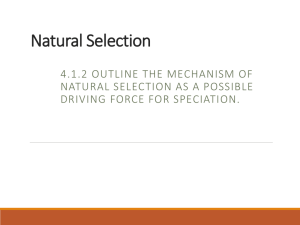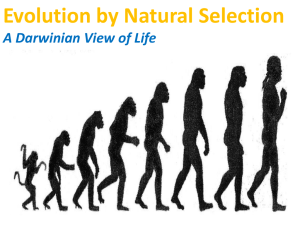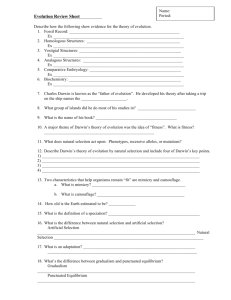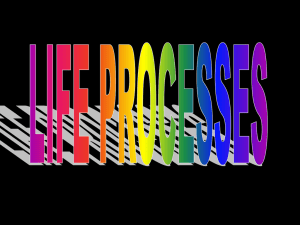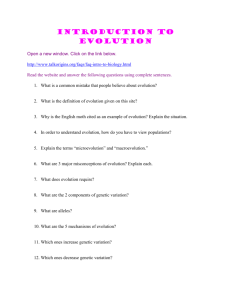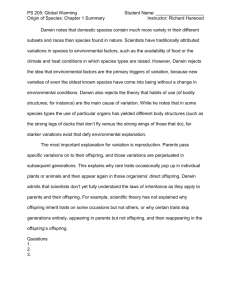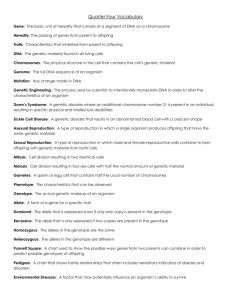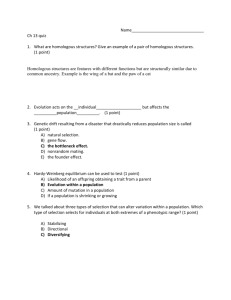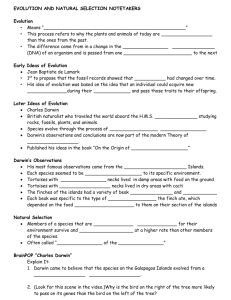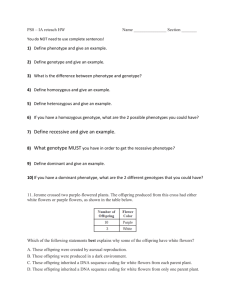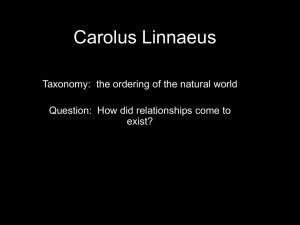Evolution Primer - Personal Web Pages
advertisement
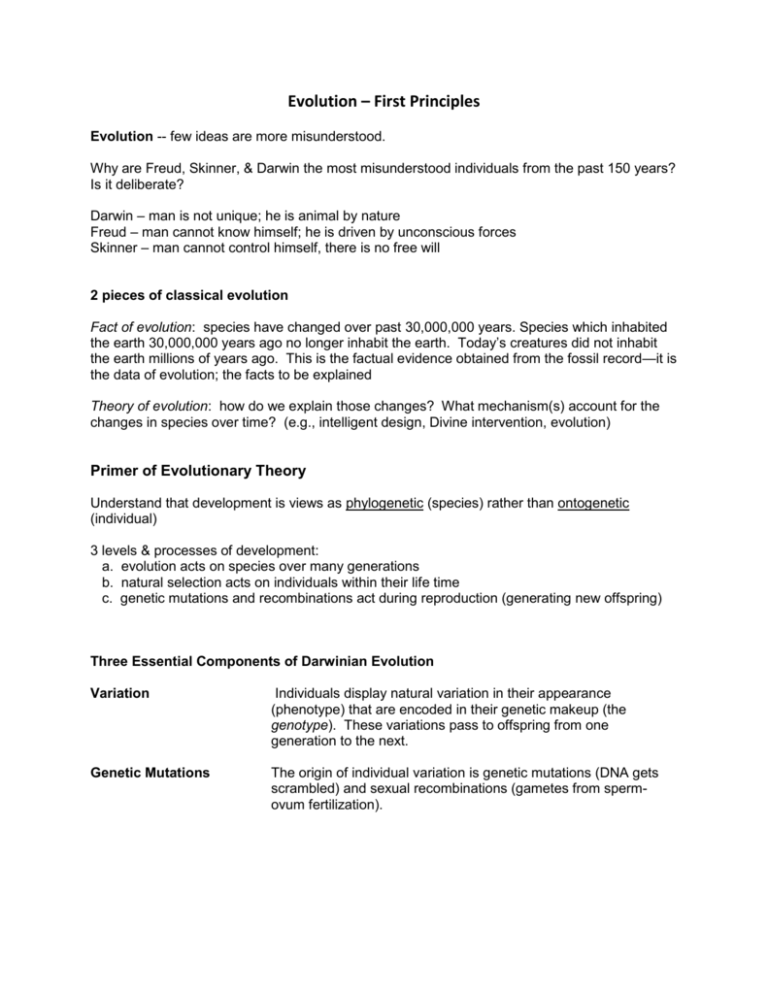
Evolution – First Principles Evolution -- few ideas are more misunderstood. Why are Freud, Skinner, & Darwin the most misunderstood individuals from the past 150 years? Is it deliberate? Darwin – man is not unique; he is animal by nature Freud – man cannot know himself; he is driven by unconscious forces Skinner – man cannot control himself, there is no free will 2 pieces of classical evolution Fact of evolution: species have changed over past 30,000,000 years. Species which inhabited the earth 30,000,000 years ago no longer inhabit the earth. Today’s creatures did not inhabit the earth millions of years ago. This is the factual evidence obtained from the fossil record—it is the data of evolution; the facts to be explained Theory of evolution: how do we explain those changes? What mechanism(s) account for the changes in species over time? (e.g., intelligent design, Divine intervention, evolution) Primer of Evolutionary Theory Understand that development is views as phylogenetic (species) rather than ontogenetic (individual) 3 levels & processes of development: a. evolution acts on species over many generations b. natural selection acts on individuals within their life time c. genetic mutations and recombinations act during reproduction (generating new offspring) Three Essential Components of Darwinian Evolution Variation Individuals display natural variation in their appearance (phenotype) that are encoded in their genetic makeup (the genotype). These variations pass to offspring from one generation to the next. Genetic Mutations The origin of individual variation is genetic mutations (DNA gets scrambled) and sexual recombinations (gametes from spermovum fertilization). Natural selection Individuals produce more offspring than can survive. Competition occurs among individuals for essential resources (survival of the fittest). Nature “chooses” from the competitors according to their phenotypes (speed, intelligence, power, cunning). This process weeds out (kills off) poorly adapted individuals & selects in favor of (surviving) well adapted individuals. These adaptations (both phenotype and underlying genotype) are passed on to offspring. Outcome: more members of successive generations display well adapted phenotype and its underlying genotype. The process cycles anew with each generation. Problem with Darwin’s theory: Competition & natural selection. Survivability is NOT the important issue. Producing and preserving offspring are. Hence, E. O. Wilson’s TWO Advances on Darwin’s Theory 1. Natural selection does not occur solely through competition for survival; it occurs through reproductive success, also called genetic fitness. 2. Social qualities and social tendencies are also phenotypes. As such, they are controlled by and connected to underlying genotypes. This means that social behaviors and societies themselves are also subject to natural selection. But there is no fossil evidence for social behaviors.
